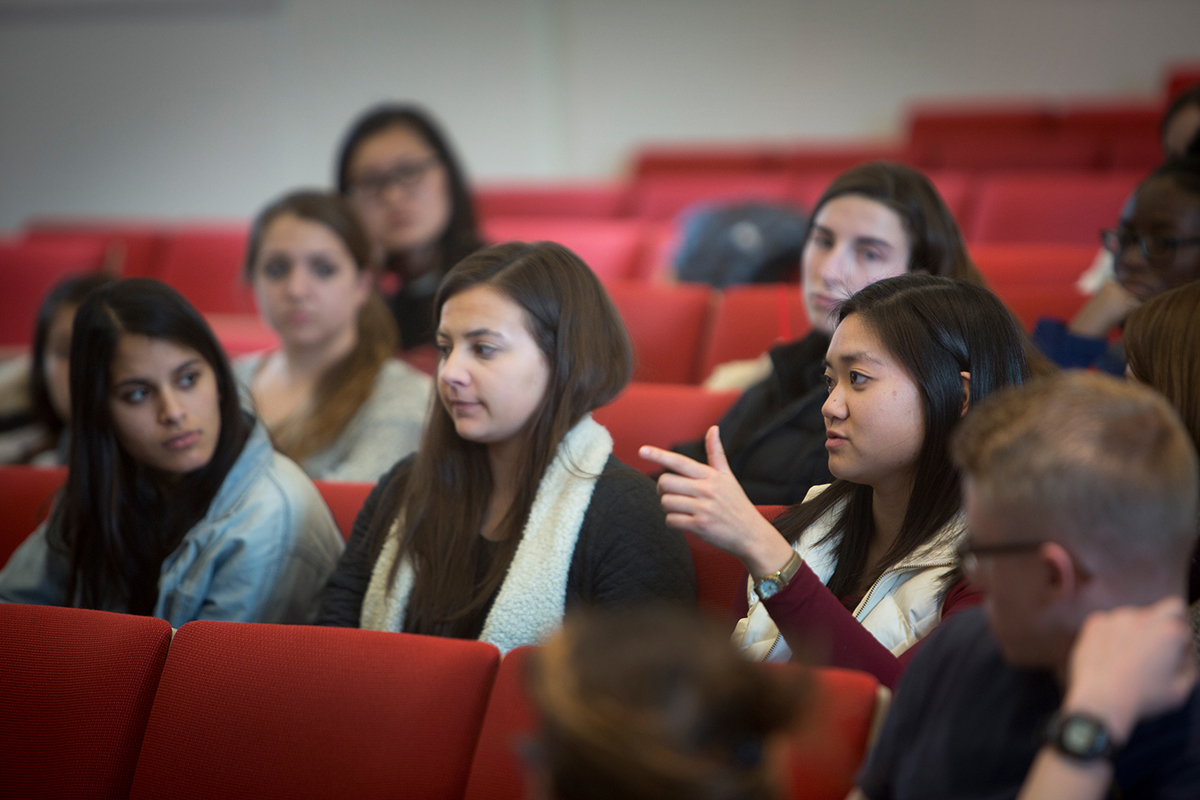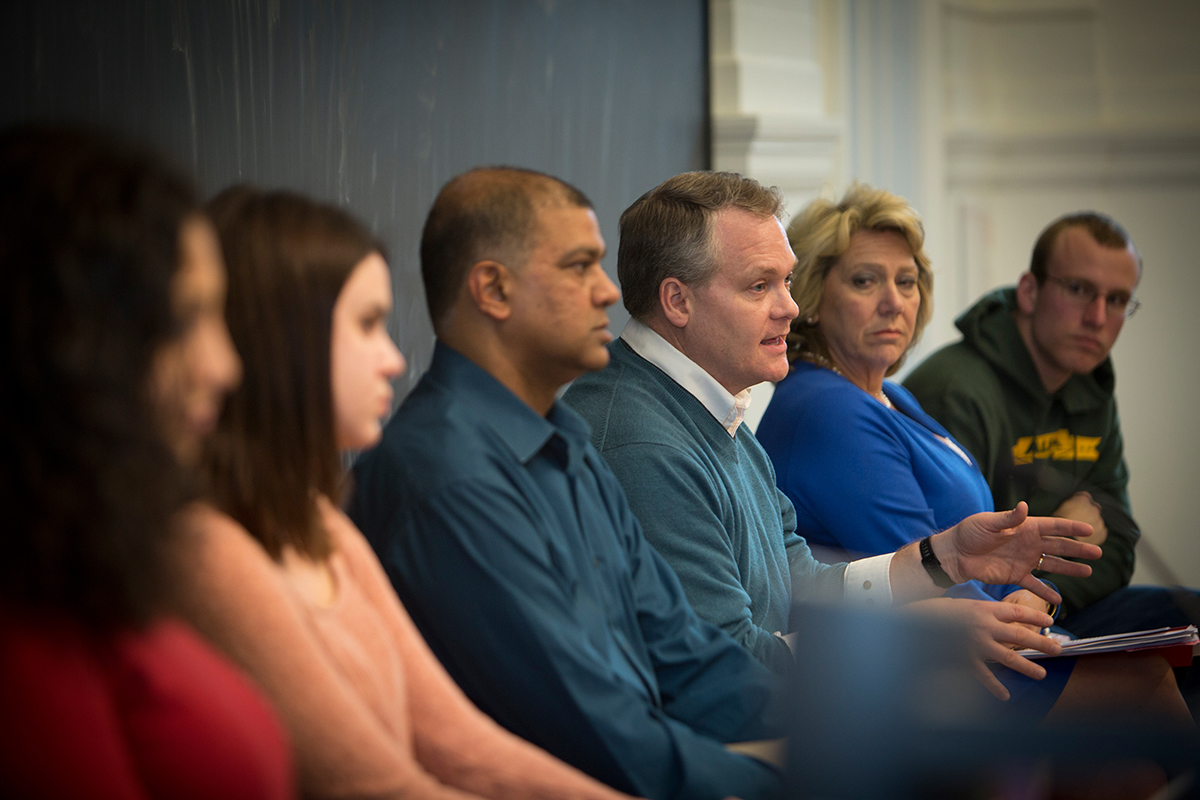Business college to bring students more classes, career help
By Susan Kelley


Undergraduate students in the new Cornell College of Business will see the first benefits of the college in the form of more extensive career services, easier access to a wider range of classes and the addition of new faculty with broad expertise.
The opportunities for business college students, as well as answers to several of their practical questions, took center stage at an open forum March 22 in Warren Hall. Although the forum was open to all students, the discussion focused mostly on how the college will benefit those in the Charles H. Dyson School of Applied Economics and Management.
One of the most visible benefits to students will be better coordination of curriculum in the three member schools, from cross-listing classes to timing courses so they don’t conflict, said Chris Barrett, deputy dean and dean designate of academic affairs for the College of Business.
He cited an example of how a current lack of coordination is detrimental to graduate students: The two international finance courses taught by two prominent faculty members in two schools were offered this year at exactly the same time and same semester and are taught only every other year. So graduate students were unable to take both classes. “There are lots and lots of those examples because it becomes very difficult to coordinate units that have no common management other than at the university level,” he said.
Career services should also expand and become better coordinated, Barrett said. “We hear routinely from employers that they wish we could coordinate more effectively. And students want access to employers that their friends in other schools seem to be able to access,” Barrett said.
While details have not been settled, each school will likely have dedicated career services staff. That will be a boon to Dyson students, who are now served by career services of the College of Agriculture and Life Sciences (CALS), which is home to Dyson; that office has only three staff to serve 3,600 students. The CALS team does an excellent job but “doesn’t even come close” to the career services staffing offered by its top-10 undergraduate business program peers, Barrett said.
“It’s something Dyson has to invest in. As we expand career services, it will make it a lot easier to coordinate that with what the Samuel Curtis Johnson Graduate School of Management, the School of Hotel Administration and central university career services have,” Barrett said.
Expanded career and other student services and faculty growth should be enabled by growing executive education and other revenue-generating programming, Barrett said, which will in turn be supported by the larger faculty.
Harvard Business School generates about $100 million per year from executive education, pointed out Rohit Verma, the college’s dean designate for external relations. In comparison, together the college’s three business schools generate less than $20 million, he said. “Even if we double that, we can do so much more for our students and faculty,” he said.
Several students asked tactical, practical questions, including how the application process will be different for prospective Dyson students. It will remain the same except for the initial steps, Barrett said. Currently prospective students apply to CALS and select its Applied Economics and Management (AEM) major. Next summer, prospective students can do the same – or apply to the College of Business via Dyson with an AEM major.
No matter which path an applicant chooses, all the applications will be placed in the same pool. “There’s no advantage or disadvantage to which way you apply,” said Cindy Van Es, Dyson’s associate director for undergraduate programs. “It will have the same essays, the same everything.”
Class sizes will also remain the same, including core courses, she said in answer to another student’s question.
Many questions that have been posed by undergraduate students are addressed in a frequently asked questions document compiled by the college’s Undergraduate Student Synergy Group, Verma said.
At the close of the session, Van Es encouraged students to offer feedback about the college via members of the Undergraduate Student Synergy Group or the college’s website (http://business.cornell.edu ).
Other panelists included Ben Young ’16, a CALS animal sciences major; Laya Mallela ’17, the Dyson Undergraduate Council’s executive vice president and vice president for faculty engagement; and Casey McClaren ’17, the Dyson Undergraduate Council’s president. The students are members of the Undergraduate Student Synergy Group and organized the event.
Media Contact
Get Cornell news delivered right to your inbox.
Subscribe